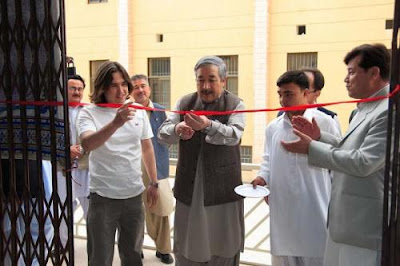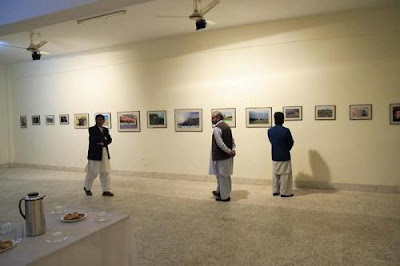
Lyari in the early 20th century. – File photo
Gang wars, poverty, Pakistan Peoples Party (PPP), football and, maybe, boxing are the notions usually associated with Lyari, one of Karachi’s oldest neighbourhoods. There is, however, more to Lyari than these stereotypes.
Historically, the inhabitants of Lyari were among the first settlers Karachi.
In her book “The Dual City: Karachi During the Raj,” renowned architect Yasmeen Lari writes: “By 1890 the population of Lyari had already reached 24,600.” These figures are indicative of Lyari’s high population rates even before the notion of partition emerged. Even today, the area remains among the most densely populated, with the highest ratio of inhabitants-per-square-kilometre.
Some of the most popular names to have been associated with Lyari include Hussain Shah (Olympic boxer), Umar Baloch, Ghulam Abbas and Ustaad Qasim (footballers), Waja Ghulam Muhammad Noor ud Din (educationist), Syed Sajjad Ali Shah (former Chief Justice), Waja Khair Mohammad Nadvi (scholar who translated Quran into Balochi language) and Sikandar Baloch (former Mr Pakistan in body building).
Lyari’s history, however, goes beyond these names.
Quaid-e-Azam and Lyari
In 1948, during the days of his illness, Quaid-e-Azam Muhammad Ali Jinnah was travelling near Lyari, when his car came to a sudden halt in the area. The inhabitants were quick to offer their services to the country’s founder. In those early post-partition days, Lyari was home to a sizable immigrant population, which was welcomed by the old settlers of the area despite their own financial woes.
Later that year, when Jinnah lost his life to prolonged illness, it was one of Lyari’s oldest sons Noor Mohammad Baloch, who performed his burial, as well as that of the country’s first prime minister Liaquat Ali Khan.
After Jiinah’s death, government officials got in touch with Zulekha Bibi, who was in charge of Marwari Grave Yard to prepare for the burials. Zulekha instructed Baloch and others to finalise and carry out the services.

A certificate showing appreciation for the services of Zulekha Bibi – a resident of Lyari overlooked arrangements for the burial of Quaid-e-Azam Muhammad Ali Jinnah and Liaquat Ali Khan. – Photo courtesy Ayoub Baloch
The literary Lyari
Apart from being home to sports greats, Lyari has also attracted one of the biggest names of Pakistan’s literary world. For Faiz Ahmed Faiz, Lyari was like a passion. In the early 1970s, Faiz frequented the Abdullah Haroon College, where he taught and served as principal (1972-73).
“We were very fortunate to have Faiz sahib at the college,” says Zafar Ali Zafar – a Balochi and Urdu poet from Lyari.
“He (Faiz) would travel from the Nursery area (in Karachi) to Lyari to offer his services because it was very close to his heart,” recalls Zafar.
Zafar says Faiz inspired him and his poetry. “He even selected a poem for me to recite at a Radio Pakistan mushaira (poetic symposium).”
Decades after Faiz’s death, Lyari still maintains a literary aura.
“The Abbas Ali Zehmi Academy remains an active hub for literary dialogue, with Ghani Bux and Hassan Ali Hassan among the most active poets.”
Muhammad Baig Baloch is another literary figure from Lyari. “He has written several books in Urdu, English, Sindhi and Persian in addition to translating major literary works into Balochi language.”
Lyari has also been central to the region’s politics. The Madressah Mazhar ul Uloom played a pivotal role in anti-British movements (including the Khilafat Movement) in the pre-partition era. Lyari-based Qadir Bux Rind Baloch (alias Kadu Makrani), an anti-British freedom-fighter met his death in the Chakiwara area in 1887, when he was hanged.
In the days of the martial law imposed by Ayub Khan, members of the Alliance for Restoration of Democracy (ARD) would meet at Lyari’s Kakri ground.
From Lyari to Australia
Lyari is commonly known for its passion for camel-cart racing. The area, however, was once the centre of camel trade to countries as distant as Australia.
Traders Dost Muhammad Brohi and Jorak introduced the camels of Balochistan and Afghanistan to Australia, via steam ships in the 1890s
Camel trade took Brohi, a Baloch born in 1870, to Australia in 1883, but it was his love for British girl Annie that made him settle down in the country and marry her in 1986.
Brohi, however, remained unsettled in the Australian lifestyle and after several brawls, his wife’s brothers killed Brohi in 1909.
In 1993, Brohi and Annie’s granddaughter Jane Garnand landed in Karachi, in search of Annie’s grave, which she later found in the Clifton area.
Education on the streets
Lyari boasts a distinctive record of school systems, such as the ARM and Kiran Hasht Chowk and Baghdadi areas are, in particular, the hub of education. Here, local non-government organisations have been operating “street schools” for students of primary and secondary classes.
The educated youth of the area have launched the “Lyari Naujawan Tehrik” against the prevalence of drugs and crimes in the area. The movement came under threat from the drug mafia but also brought in other NGOs, which set up schools for informal education.
Despite the odds, street schools in Lyari offer hope to the people of Lyari, as they discourage the youth from falling prey to the gang wars.
“Financial problems are real ailment of Lyari, “according to M.Y Baloch a concerned local.
“Political parties have failed to meet our needs and even the ruling party made empty pledges, said Baloch.”
Lyari, can be called a mini-Pakistan, with colours of culture, sports, and traditions. The Lyari River was clean and a healthy habitat for fish, before the 1970s. It has now turned into a dirty stream. The sea breeze from Lyari cooled the other parts of Karachi, which has now been blocked by the Lyari Expressway.
Locals believe their miseries can be dealt with, if the government is sincere.
“The people of Lyari need love not force,” insists Zafar, as he recalls a Balochi proverb: “Hoo’n Go’n Hoo’na Shodag Nabet – you can’t wash blood with blood.


































.gif)
